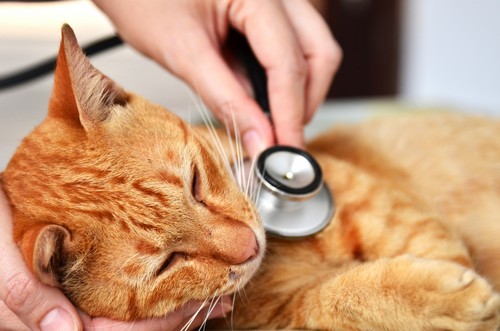Customized Vet services tailored to your animal’s needs
Exactly How a Veterinary Specialty Hospital Can Cure Your Pet dog's Disorders With Advanced Techniques
Veterinary specialty hospitals play a necessary function in resolving intricate wellness problems in pets. They make use of sophisticated methods and modern technologies that boost diagnosis and treatment. With access to specialized solutions, pet proprietors can find customized solutions for their pets' disorders. This elevates vital concerns regarding the certain methods utilized and the advantages they supply. Recognizing these aspects can notably affect a pet's recuperation journey.
Understanding the Function of Veterinary Specialty Hospitals
Main care veterinarians provide vital services for pet health and wellness, vet specialty hospitals play a vital function in resolving complicated clinical conditions that call for sophisticated diagnostics and therapy. These centers are geared up with specialized innovation and seasoned experts that focus on specific locations of vet medication, such as oncology, neurology, and cardiology.
Veterinary specialty hospitals promote a joint approach, often operating in conjunction with a pet's key veterinarian to produce extensive treatment plans. They offer accessibility to sophisticated imaging methods, such as MRI and CT scans, which are not typically available in typical facilities - Learn More. On top of that, these hospitals provide extensive care devices for critically unwell animals, making certain day-and-night surveillance and assistance
Specialized Providers Provided by Veterinary Experts
Veterinary specialists provide vital services that improve pet medical care, specifically through sophisticated diagnostic imaging strategies. These devices make it possible for exact analyses of complicated medical problems, resulting in much more effective targeted therapy plans. By incorporating these specialized services, veterinary hospitals can greatly boost patient end results and total wellness.
Advanced Diagnostic Imaging
Advanced diagnostic imaging plays a vital duty in modern-day vet medicine, allowing specialists to acquire comprehensive insights right into an animal's wellness. Techniques such as X-rays, ultrasound, computed tomography (CT), and magnetic vibration imaging (MRI) permit veterinarians to picture inner structures without invasive procedures. These innovative imaging modalities help in diagnosing a selection of conditions, from cracks and tumors to body organ irregularities. By giving clear pictures, they enhance the precision of evaluations, which is important for effective therapy preparation. Furthermore, specialized veterinary radiologists analyze these pictures, making certain that refined problems are not forgotten. Eventually, progressed diagnostic imaging contributes in supplying considerable treatment, as it enables for very early discovery and intervention in a pet dog's medical concerns.
Targeted Treatment Plans
Targeted therapy plans are essential for attending to the specific health and wellness demands of family pets, making sure that each pet receives individualized care tailored to its one-of-a-kind condition. Veterinary specialists create these plans based upon complete evaluations, including innovative diagnostic imaging and lab examinations. By concentrating on the specific pet's diagnosis, type, way of living, and age, experts can prescribe reliable therapies, varying from drug adjustments to surgical interventions. These strategies additionally integrate follow-up care and checking to track the animal's progress and make essential adjustments. This method promotes excellent outcomes and boosts the overall high quality of life for family pets dealing with complicated wellness challenges. Eventually, targeted therapy strategies represent a dedication to providing the greatest standard of veterinary treatment.
Advanced Diagnostic Techniques for Accurate Diagnoses
As pet dogs encounter significantly complex health obstacles, the assimilation of advanced diagnostic strategies has ended up being necessary for attaining exact diagnoses. Veterinary specialty hospitals make use of state-of-the-art imaging modern technologies, such as MRI and CT scans, to envision inner structures with impressive clarity. These techniques enable veterinarians to recognize problems that might not be visible via conventional techniques.
In addition to imaging, progressed lab tests, consisting of hereditary and biomarker evaluations, offer important understandings into hidden conditions. These tests make it possible for veterinarians to find illness at earlier stages, promoting prompt intervention (Learn More). The use of endoscopy enables for straight visualization of internal body organs, helping in the diagnosis of breathing and stomach concerns.
Ingenious Therapy Choices for Complex Conditions
Innovative therapy choices for complicated conditions in pets have actually arised as a vital emphasis within vet specialty hospitals. Using cutting-edge analysis devices, these facilities boost their ability to identify problems precisely and customize suitable treatments. Furthermore, the execution of minimally invasive treatments and progressed rehabilitation techniques offers animals a much better possibility at healing with reduced discomfort.
Advanced Diagnostic Equipments
While the landscape of veterinary medication continues to progress, innovative diagnostic tools have actually become essential possessions for resolving complex conditions in animals. These innovative technologies, consisting of electronic imaging, ultrasound, and molecular diagnostics, enable veterinarians to acquire exact information concerning an animal's health and wellness status rapidly. As an example, high-resolution imaging strategies can disclose elaborate details of inner structures, enabling accurate analyses of injuries or diseases. In addition, hereditary testing provides understandings right into genetic conditions, leading tailored treatment plans. By leveraging these cutting-edge diagnostic tools, veterinary specialty hospitals can improve their ability to recognize disorders that might have previously gone unseen. Ultimately, these developments add to enhanced outcomes and improve the total quality of treatment provided to precious animals.
Minimally Intrusive Procedures
Developments in veterinary medicine have led the way for minimally intrusive treatments, which use new therapy choices for complicated problems in animals. These cutting-edge strategies, such as laparoscopy and endoscopy, allow vets to perform surgical procedures with smaller cuts, minimizing injury and healing time. By making use of specialized instruments and cameras, vets can detect and deal with issues like tumors, stomach conditions, and joint problems with accuracy. This method decreases discomfort and brings about quicker healing, enabling pets to return to their normal tasks quicker. Vet services. Furthermore, minimally invasive procedures usually lead to less scarring and a reduced threat of difficulties. As vet specialty hospitals embrace these advanced approaches, pet owners can really feel much more positive in their animals' care and overall well-being
Advanced Rehabilitation Techniques
As veterinary medicine advances, progressed rehab methods are coming to be vital for handling complicated problems in animals. These methods incorporate a variety of innovative treatment options, including hydrotherapy, laser treatment, and physical treatment. Hydrotherapy utilizes water resistance to enhance movement and reinforce muscular tissues, advantageous for pets recovering from surgical treatment or injury. Laser treatment promotes recovery by reducing inflammation and discomfort, promoting quicker recuperation times. Physical therapy employs targeted exercises to improve strength and versatility, tailored to every animal's specific needs. Additionally, methods like acupuncture and chiropractic care adjustments can further sustain rehab by easing discomfort and enhancing total well-being. Veterinary specialty hospitals are significantly including these methods, making sure pets receive comprehensive care that resolves both physical and psychological recuperation, ultimately improving their top quality of life.
The Relevance of a Multidisciplinary Strategy
A multidisciplinary technique in veterinary treatment substantially enhances the therapy outcomes for pet dogs, as it incorporates proficiency from different specializeds to address complex wellness concerns. This joint technique includes veterinarians, specialists, specialists, and assistance staff collaborating to develop thorough treatment strategies tailored to each animal's distinct requirements (Veterinary). By incorporating knowledge from areas such as surgical procedure, internal medication, oncology, and rehab, veterinarians can determine underlying problems that may otherwise go unnoticed
Additionally, this approach promotes communication among employee, ensuring that all facets of an animal's health and wellness are considered. As an example, a pet recuperating from surgery might gain from input from both a rehabilitation and a surgeon specialist, causing a much more effective recuperation procedure. Eventually, a multidisciplinary technique not just boosts the top quality of care yet likewise improves the general wellness of pets, supplying them with the most effective opportunity for a successful recuperation and long-term health and wellness.
Cutting-Edge Technology in Veterinary Medicine

With the fast development of innovation, vet medication has actually accepted innovative devices and strategies that significantly improve diagnostics and therapy choices for animals. Advanced imaging innovations, such as MRI and CT scans, enable veterinarians to visualize inner structures with unprecedented clearness, assisting in exact medical diagnoses. In enhancement, minimally invasive medical methods, supported by robotic-assisted systems, boost precision and decrease recuperation times for family pets.
Telemedicine has actually likewise become a vital resource, making it possible for veterinarians to seek advice from pet dog owners from another location, consequently helping with timely treatments. Furthermore, the integration of expert system in analyzing clinical information contributes to extra reliable treatment strategies customized to individual requirements. Advanced research laboratory equipment enables quick blood analysis and microorganism discovery, fostering timely clinical reactions. As vet specialty hospitals continue to include these advancements, they not only improve the quality of care yet also considerably boost the overall health of pets.
Success Stories: Real-Life Examples of Family Pet Recuperation
Countless heartwarming success tales highlight the amazing healings of family pets treated at veterinary specialty hospitals. One such situation entailed Bella, a Golden Retriever diagnosed with a severe orthopedic issue. After sophisticated medical treatment and recovery, Bella was not just able to stroll again but likewise to run joyfully in the park, much to her owners' delight.
An additional inspiring tale attributes Max, a cat with chronic kidney disease. Via specialized dietary management and innovative treatments, Max's condition stabilized, allowing him to reclaim his power and cravings. His proprietors were pleased to see him return to his lively self.

Regularly Asked Inquiries
What Should I Anticipate During My Pet's Specialty Consultation?
Throughout a specialty appointment, pet dog proprietors can expect a complete assessment, comprehensive medical background discussions, analysis examinations, and tailored treatment options. The veterinary directory specialist will certainly provide understandings and referrals for the pet dog's particular health requirements.
Exactly How Can I Locate a Veterinary Specialty Hospital Near Me?
To discover a veterinary specialty hospital nearby, one can use on-line internet search engine, examine local directory sites, or seek referrals from main veterinarians. In addition, family pet owner online forums can offer useful insights and experiences concerning neighboring centers.
Are Specialty Solutions Covered by Family Pet Insurance Coverage?
Specialty services may be covered by pet insurance coverage, however coverage differs by plan. Owners ought to meticulously examine their insurance coverage strategy information and consult their company to comprehend the extent of protection for specialty vet solutions.

How Much Time Will My Animal's Therapy Take?
The period of an animal's treatment can differ substantially, typically varying from a couple of days to several weeks - Vet services. Factors influencing this timeline include the certain problem, treatment type, and the family pet's overall health and wellness and feedback
What Are the Expenses Connected With Specialty Veterinary Care?
The expenses associated with specialty vet care can differ widely, generally ranging from hundreds to thousands of dollars. Elements influencing these expenses include the complexity of the condition, called for treatments, and diagnostic procedures required for efficient care.
Veterinary specialty hospitals play a crucial duty in attending to intricate wellness concerns in family pets. Main care vets supply crucial solutions for pet health and wellness, veterinary specialty hospitals play a vital duty in attending to complicated medical problems that call for innovative diagnostics and therapy. Veterinary specialty hospitals promote a joint technique, typically working in conjunction with a pet's key vet to develop thorough care strategies. Cutting-edge treatment alternatives for complex conditions in pet dogs have actually emerged as a crucial emphasis within vet specialty hospitals. A multidisciplinary strategy in veterinary treatment substantially improves the therapy end results for family pets, as it integrates know-how from various specializeds to attend to complicated health problems.